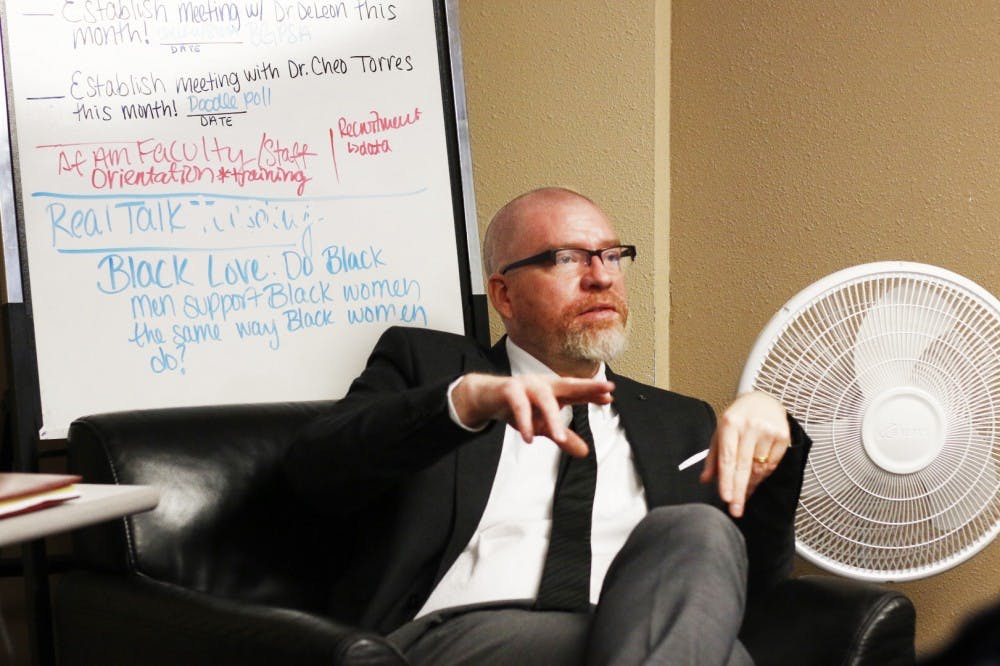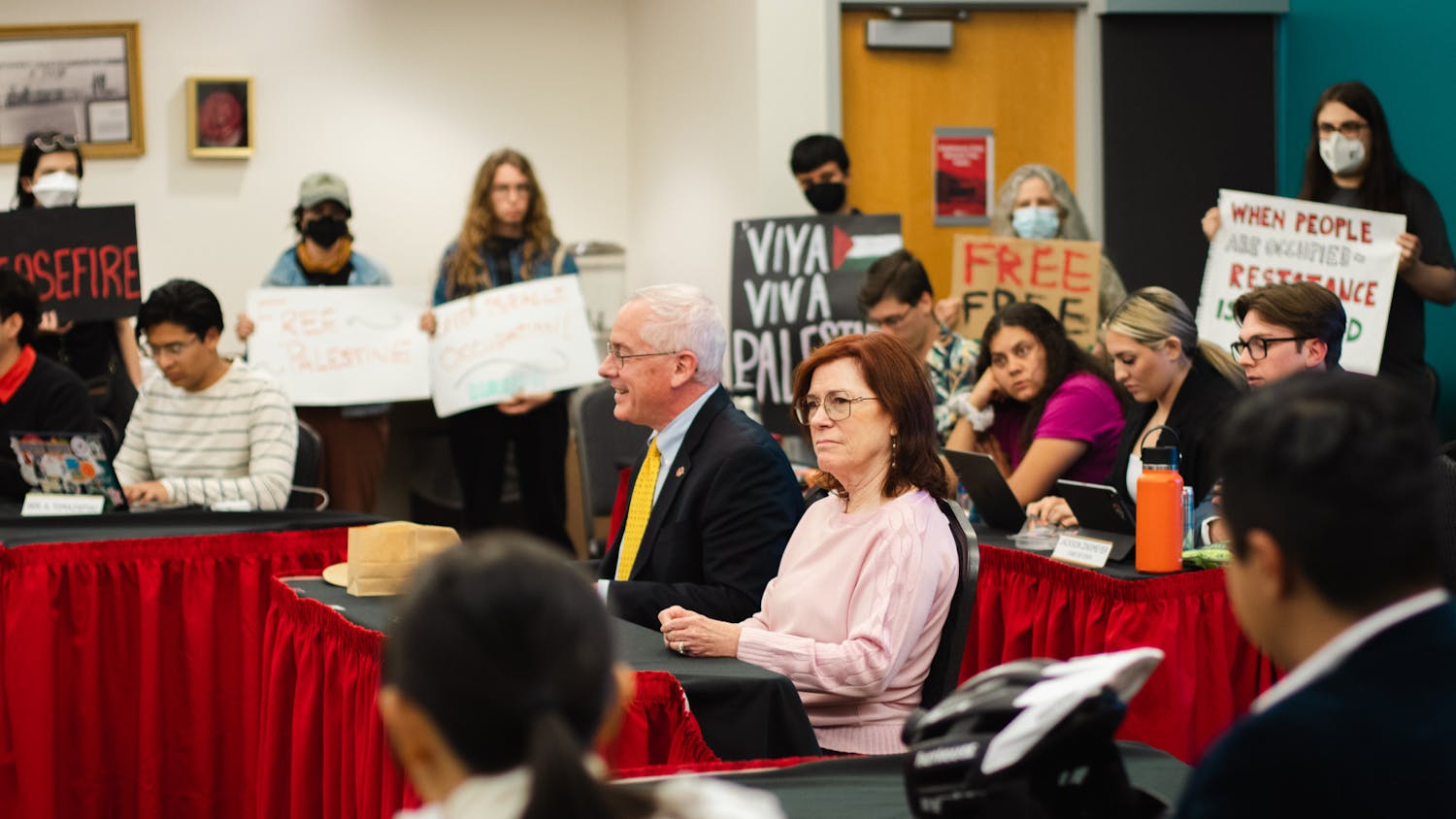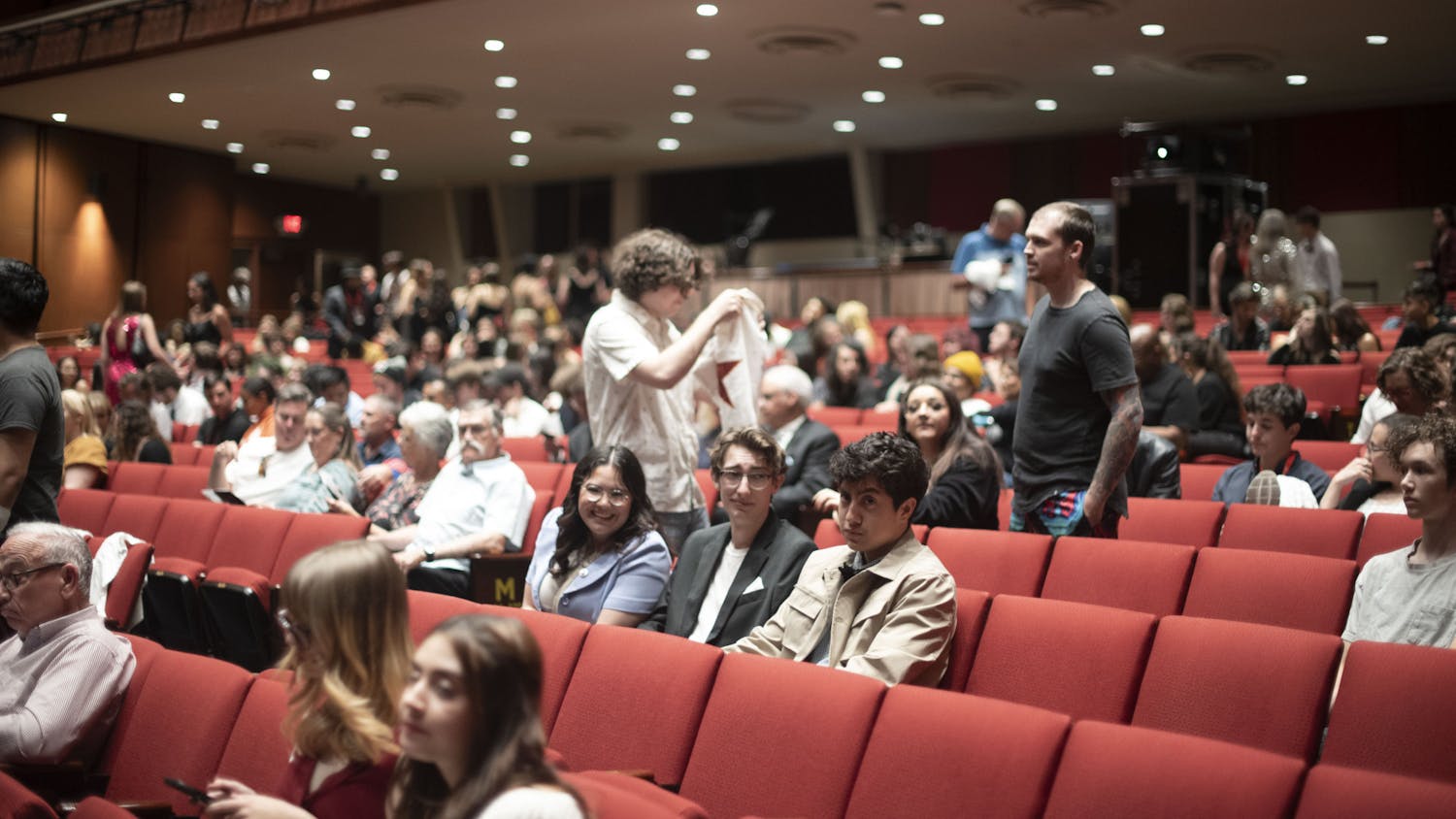Tuesday afternoon Dr. Tyson E.J. Marsh discussed the history of African-American culture, neoliberalism and, ultimately, what it means to be Black, in his lecture, “Everybody Wants to be Black Until It’s Time to be Black.”
“The talk is informed by the appropriation and commodification of Black culture and the critical need to reclaim cultural tools of resistance in the struggle for racial and economic justice against what Bell Hooks has aptly named imperialist-White-supremacist-capitalist-patriarchy,” Marsh said, prior to the lecture.
Marsh kept the lecture, which was held by the African American Student Services, interactive by constantly asking for the audience members’ opinions, having the audience talk amongst themselves and showing various YouTube videos.
However, he discussed public pedagogy, which he said helps us understand what we are being taught on campus, through billboards, on television and other forms of media.
He focused on hip-hop culture as a form of public pedagogy and said it was grounded in the struggle against White supremacy.
Turntablism and DJ-ing were initially a form of resistance, as disco music hooks were replayed to insult the genre and those associated with it, he said. B-boy/girl dance-offs were created as an alternative to violence.
Marsh defined neoliberalism as “capitalism with the gloves off” - a matter of regulating monetary flow by choosing to put or not to put policies in place, he said. He sees many of these policies in police brutality cases, such as those of Rodney King and Michael Brown.
“The state has been charged with the task of regulating race...Neoliberalism is normalizing the violence that we experience,” he said.
Marsh went on to discuss other parts of racial marginalization. He said that African-Americans are often pushed into low-paying, service/labor jobs and he discussed the controversial use of a frontiersman and a conquistador on UNM’s seal, which embodies the death of the innocent.
He also discussed cultural appropriation in public figures, such as Rachel Dolezal, and allowed audience members to discuss their opinions on whether this was apparent in Macklemore or Iggy Azalea.
He also spoke about Black artists such as Beyoncé, Jay-Z and Kanye West and the messages they send about the treatment of women and monetary status. Marsh also mentioned the struggle of Black students (especially athletes) to prove that they belong at the University of New Mexico.
“The wealth and power of this nation was accumulated on the backs of Black people, Indigenous people and other people of color,” Marsh said. “It is 2016; we have a Black president, yet we still have to assert that Black lives matter. We cannot allow the state-sanctioned, slow, but systematic extermination of Black, Indigenous and Brown youth at the hands of the police or through institutionalized and systemic racism.”
Get content from The Daily Lobo delivered to your inbox
Marsh said he hopes the audience will gain “a stronger understanding of the urgency of their agency” after listening to the talk.
Marsh encouraged the audience to be critical of the spaces they occupy. He said that African-Americans ultimately need to speak up for themselves.
“We can no longer look to leaders, look what happened to Malcolm,” he said. “Look what happened Martin.”
Dannelle Kirven, a freshman criminology and journalism major, and Patricia Lott, a senior liberal arts major, attended the lecture and both said they found it informative, but wished more non-Blacks were present, especially seeing as the event was open to all.
The students felt that many non-Blacks did not attend because they still carry stereotypes about Black culture and may be concerned about not blending in.
“We’re students, trying to get an education, and we’re human,” Lott said.
Lott, the president of Powerful Movement of Educated Sisters - a UNM student organization that empowers Black women through scholarships and community involvement - said she is constantly trying to prove to others that she does not adhere to stereotypes by making sure to show her professors and peers that she will sit in the front of the class among many other daily decisions.
“[Being Black] means strength,” she said. “Comparing our ancestors’ [lives] to where we are now, and seeing how far we came, I’m proud to say that I am in college and getting an education but also realize that it took some steps, some people and it also took some deaths to get to where we are right now.”
Kirven, a member of the Black Student Union and Powerful Movement of Educated Sisters and an employee at African American Student Services, said being Black is beautiful.
“I feel strong. I feel empowered to be Black. [But] being Black and being proud to be Black is a struggle. You’re going to have to be self-aware and resilient. They’re going to tell you that you’re ugly. They’re going to tell you that you’re not smart. They’re going to tell you that you can’t do this, you can’t do that,” Kirven said. “But you can, and you know you can. That’s what being Black means to me. It’s always time to be Black.”
Elizabeth Sanchez is a staff reporter for the Daily Lobo. She can be reached at news@dailylobo.com or on Twitter @Beth_A_Sanchez.






